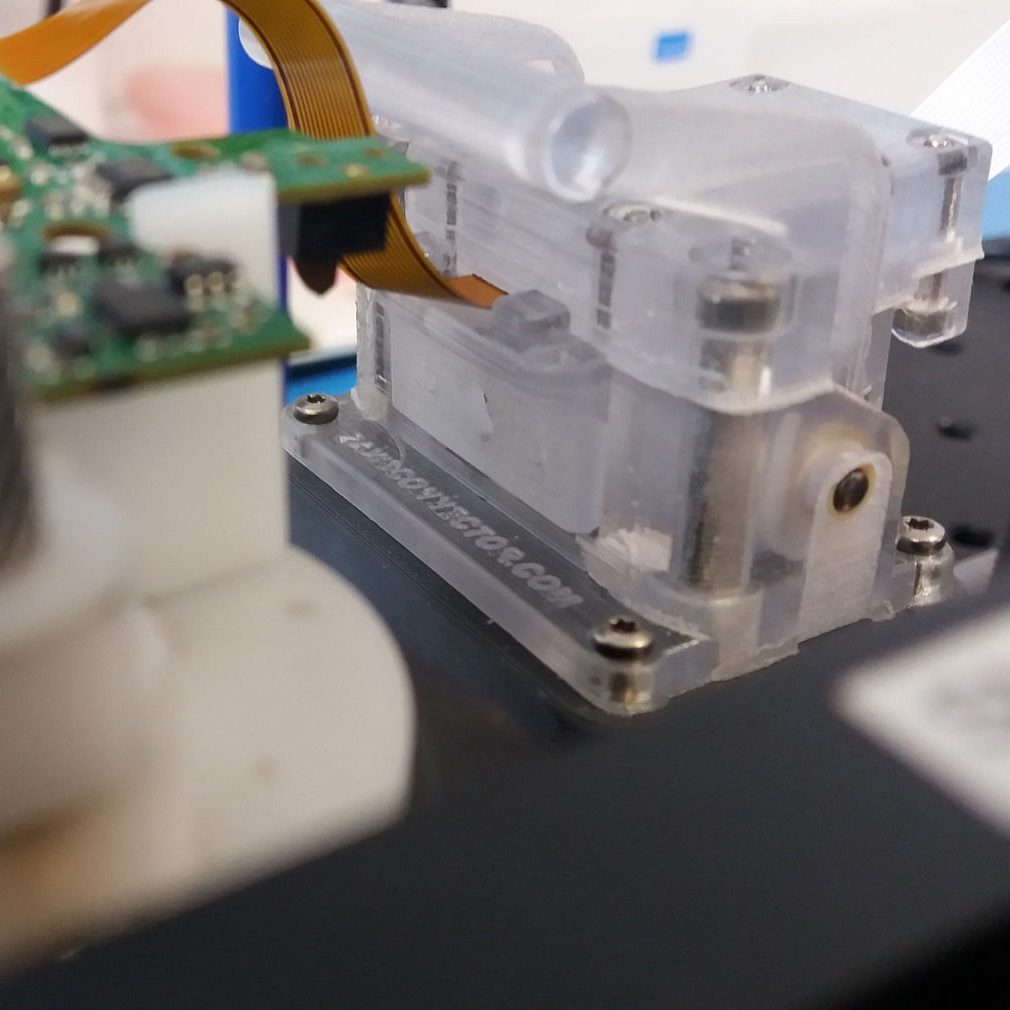Medical Device FPC Testing – A Case Study

Flexible Test – Medical FPC Fixture Application
When a leading medical device manufacturer encountered challenges in testing their Flexible Printed Circuit (FPC) devices, they sought assistance from Flexible Test. After a mutual design review, it became evident that the conventional ZIF connectors posed significant issues. The manufacturer reported instances of damage and witness marks on the FPC pads, leading to complications during final assembly. The low mate cycle count of the ZIF connectors resulted in unexpected failures of their test equipment.
Problems Associated with Standard ZIF Connectors
- Signal Degradation
- Standard ZIF connectors are susceptible to signal degradation over time due to wear and tear, leading to inconsistent electrical performance and compromised data integrity. This degradation can result in inaccurate test results and potential failures in the final product.
- Alignment Issues
- ZIF connectors require precise alignment during mating, which can be challenging to achieve consistently, especially in high-volume testing environments. Misalignment can lead to poor electrical contact, intermittent connections, and unreliable test outcomes.
- Susceptibility to Environmental Factors
- ZIF connectors may be sensitive to environmental factors such as temperature fluctuations, humidity, and dust, which can affect their performance and longevity. In harsh operating conditions, these connectors may degrade more rapidly, requiring frequent replacements and maintenance.
- Limited Compatibility
- Standard ZIF connectors may have limited compatibility with different FPC designs and sizes, restricting their versatility and applicability in diverse testing scenarios. This limitation can pose challenges for manufacturers working with a variety of FPC configurations and form factors.
- Complex Maintenance
- Maintaining and servicing ZIF connectors can be complex and time-consuming, involving intricate procedures for cleaning, inspection, and replacement of components. The labor-intensive nature of maintenance activities can increase downtime and operational costs for manufacturers.
- Risk of Connector Damage
- The delicate nature of ZIF connectors makes them prone to damage during handling, assembly, and testing processes. Any physical stress or mishandling can result in bent pins, broken components, or connector misalignment, compromising their functionality and reliability.
Addressing Testing Challenges with Flexible Test Solutions
Upon recognizing the limitations posed by standard ZIF connectors, Flexible Test embarked on a collaborative journey with the medical device manufacturer to address their testing challenges effectively. Through meticulous design reviews and in-depth consultations, Flexible Test engineers identified the specific pain points and tailored a comprehensive solution to meet the manufacturer’s unique needs.
- Tailored Testing Solutions
- Flexible Test engineers leveraged their expertise to design custom fixtures specifically tailored to the intricate requirements of the medical device manufacturer’s FPC devices. By understanding the nuances of their testing environment and device specifications, Flexible Test ensured that the solutions provided were perfectly aligned with their objectives and operational workflows.
- Iterative Development Process
- The development process involved iterative refinement and optimization, with Flexible Test continuously incorporating feedback and insights from the manufacturer to fine-tune the fixtures and enhance their functionality. This collaborative approach fostered a sense of partnership and mutual commitment to achieving optimal testing outcomes.
- Proactive Problem-Solving
- Flexible Test demonstrated a proactive approach to problem-solving, anticipating potential challenges and implementing preemptive measures to mitigate risks effectively. By addressing issues before they escalated, Flexible Test minimized disruptions to the manufacturer’s testing operations and instilled confidence in the reliability of their solutions.
- Continuous Support and Collaboration
- Beyond the initial implementation phase, Flexible Test remained actively engaged with the medical device manufacturer, providing ongoing support, training, and technical assistance to ensure the seamless integration and optimal performance of the testing solutions. This commitment to collaboration fostered a long-term partnership built on trust, transparency, and shared success.
By proactively addressing testing challenges and providing tailored solutions, Flexible Test positioned itself as a trusted partner dedicated to empowering manufacturers with innovative testing technologies and unparalleled support.
Benefits of Flexible Test Fixtures for the Medical Device Manufacturer
- Enhanced Reliability
- By transitioning to Flexible Test fixtures, the medical device manufacturer experienced a significant improvement in reliability. The durable design of the fixtures ensured consistent testing performance without the risk of damage to the FPC pads, thereby enhancing the overall reliability of their testing process.
- Extended Equipment Lifespan
- With Flexible Test fixtures, the medical device manufacturer witnessed a notable increase in the lifespan of their test equipment. The robust construction and high mate cycle count of the fixtures minimized wear and tear on the equipment, reducing the frequency of repairs and replacements.
- Streamlined Assembly Process
- The elimination of damage and witness marks on the FPC pads streamlined the final assembly process for the medical device manufacturer. With fewer defects and issues encountered during assembly, they were able to improve efficiency and meet production deadlines more effectively.
- Cost Savings
- Flexible Test fixtures proved to be a cost-effective solution for the medical device manufacturer. By reducing the need for frequent replacements of damaged components and test equipment, they realized significant cost savings in the long run, contributing to improved profitability and sustainability.
In conclusion, the adoption of Flexible Test fixtures provided the medical device manufacturer with a reliable, efficient, and cost-effective solution for their FPC device testing challenges. By addressing the limitations of standard ZIF connectors, Flexible Test empowered them to enhance the quality, reliability, and efficiency of their testing processes, ultimately driving success in their operations.
